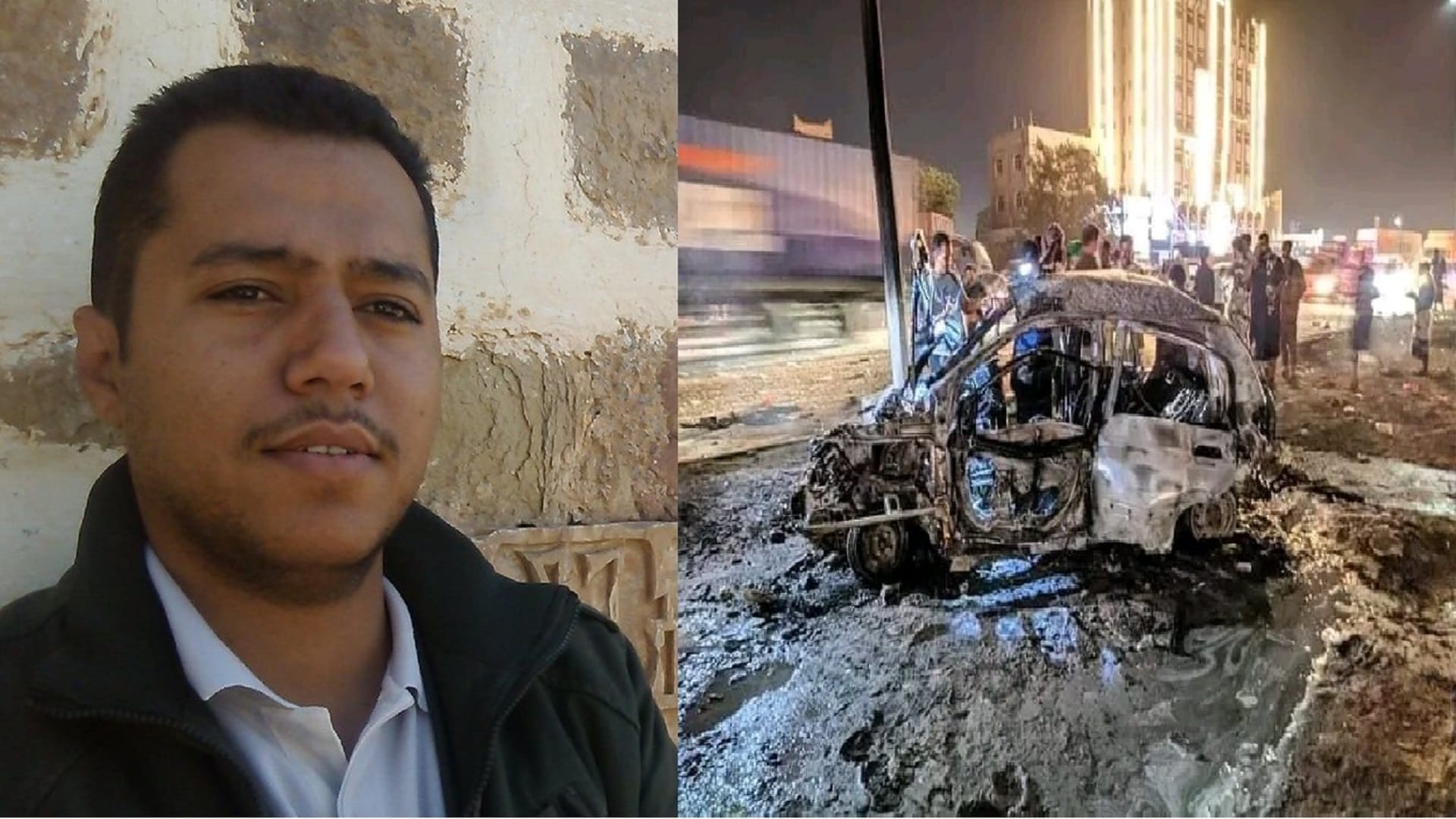
(Twitter)
Last updated on: 17-06-2022 at 10 AM Aden Time
New York
All parties to the conflict in Yemen must stop targeting members of the press and ensure that journalist killings are fully investigated and those responsible are held to account, the Committee to Protect Journalists said Thursday.
On Wednesday, June 15, a bomb planted in the car of Saber al-Haidari, a reporter with the Japanese state broadcaster NHK, exploded while he was driving in the southern port city of Aden’s al-Mansoura district, killing him at the scene.
Two unidentified individuals traveling with al-Haidari were also killed in the blast, and one was injured, according to the Gulf Center. No group immediately claimed responsibility for the attack, according to those news reports.
“Journalist Saber al-Haidari’s killing in Aden shows the cost of the international community’s silence on press freedom in Yemen, and how journalists are continuing to pay the price,” said CPJ Senior Middle East and North Africa Researcher Justin Shilad. “All sides to the conflict must immediately stop targeting journalists and investigate all killings of members of the press, and the international community should make it clear that journalists should not be targets.”
Al-Haidari also worked in the public relations department of the Yemeni government’s Ministry of Information, according to reports. Since late 2020, the Yemeni government has been engaged in a power-sharing deal with the Southern Transitional Council, a secessionist group that controls Aden.
Read Also: Yemeni Minister Alludes the Houthis' Involvement in Killing a Journalist
Contacted via messaging app, STC spokesperson Mansour Saleh condemned al-Haidari’s killing and said that the council was investigating, while also calling on the Yemeni government to investigate and take action to protect Yemeni journalists.
Al-Haidari’s death is part of a pattern of journalists being targeted in Yemen, particularly in Aden, where Rasha al-Harazi was killed in a car in bombing November 2021, and unidentified gunmen shot and killed Nabil al-Quaety outside his home in June 2020.
Journalists across the country have faced increasing risks, with little recourse to justice amid the breakdown of law and order in Yemen. The U.N. Human Rights Council formed an investigatory body to independently document human rights abuses in Yemen during the conflict, including attacks on journalists, but the council voted to end the body’s mandate in October 2021.